Moderator Stepping Down After Two Years
Sid Cassese, From Inmate to Great Reporter
Support Journal-ismsDonations are tax-deductible.
Friday’s “Washington Week” panelists were Errin Haines of The 19th, remotely; and in the studio Peter Baker of The New York Times, Leigh Ann Caldwell of The Washington Post and Nikole Killion of CBS News. (Credit: PBS)
Moderator Stepping Down After Two Years
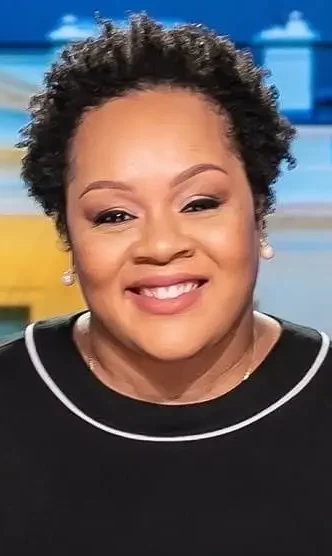 Yamiche Alcindor (pictured) announced Monday that she is leaving the moderator’s seat on PBS’ “Washington Week” to devote more time to her day-to-day job as an NBC News correspondent and to work on a memoir. She will have hosted the most diverse incarnation of the reporters-roundtable show since it debuted on Feb. 23, 1967.
Yamiche Alcindor (pictured) announced Monday that she is leaving the moderator’s seat on PBS’ “Washington Week” to devote more time to her day-to-day job as an NBC News correspondent and to work on a memoir. She will have hosted the most diverse incarnation of the reporters-roundtable show since it debuted on Feb. 23, 1967.
In fact, Alcindor ended each of her two years in the role by asking news managers to articulate the role of diversity in their coverage. On Alcindor’s “Washington Week,” the diversity extended to age and gender.
In 2021, she asked, “how has the racial reckoning affected the way that your organization has thought about covering race? Not only just police killings, but I’m also thinking of housing, of health, of the economy as we see inflation rising. And how does that also impact the assignments that you make, the reporters that you choose to cover stories?”
It was enough for the Fox News website to frame her departure as “Left-wing reporter Yamiche Alcindor praised for ‘amazing run’ as PBS host as she exits for NBC News full-time.“
In Alcindor’s announcement, she said, “This move will allow me to focus full time on my commitments to NBC News as a Washington Correspondent and to finish my upcoming memoir. My last day at Washington Week will be Friday, February 24.
 “The work we do is not easy and it has been an honor to assist our audience in making sense of it all. Beyond that, serving in this capacity has also allowed me the extraordinary opportunity to honor the life and legacy of Gwen Ifill (pictured), an iconic journalist and the longtime Washington Week moderator who loved the program and personally mentored me and so many other women.”
“The work we do is not easy and it has been an honor to assist our audience in making sense of it all. Beyond that, serving in this capacity has also allowed me the extraordinary opportunity to honor the life and legacy of Gwen Ifill (pictured), an iconic journalist and the longtime Washington Week moderator who loved the program and personally mentored me and so many other women.”
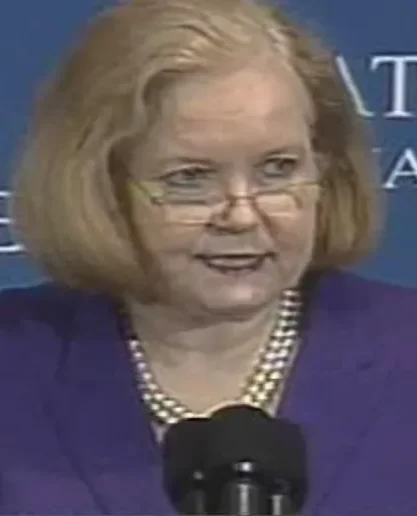 Sharon Rockefeller (pictured), president and CEO of WETA, the Washington PBS station that produces the program, said that the show “remains a vital part of our news and public affairs programming for the nation.” WETA will ”draw on the strong roster of journalists at ‘PBS NewsHour’ and in the Washington press corps to continue this good work. We particularly appreciate the continued dedication of the ‘Washington Week’ team in producing the program smoothly through this transition.”
Sharon Rockefeller (pictured), president and CEO of WETA, the Washington PBS station that produces the program, said that the show “remains a vital part of our news and public affairs programming for the nation.” WETA will ”draw on the strong roster of journalists at ‘PBS NewsHour’ and in the Washington press corps to continue this good work. We particularly appreciate the continued dedication of the ‘Washington Week’ team in producing the program smoothly through this transition.”
It was not clear why Alcindor could not have continued her day job at NBC and simultaneously hosted “Washington Week” on Friday evenings.
Last week’s panelists were Errin Haines of The 19th, a Black woman; Peter Baker of The New York Times and Leigh Ann Caldwell of The Washington Post, who are white, and Nikole Killion of CBS News, also a Black woman.
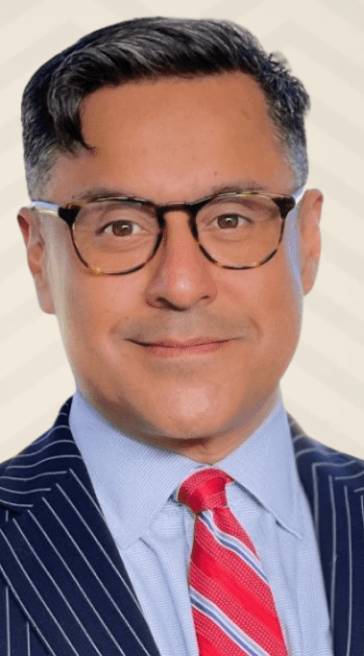 The year-end show on Dec. 30 featured editors Elisabeth Bumiller of The New York Times, who is white; Fin Gómez (pictured) of CBS News, who is Latino; and Terence Samuel of NPR and Vanessa Williams of The Washington Post, both Black journalists.
The year-end show on Dec. 30 featured editors Elisabeth Bumiller of The New York Times, who is white; Fin Gómez (pictured) of CBS News, who is Latino; and Terence Samuel of NPR and Vanessa Williams of The Washington Post, both Black journalists.
To Alcindor’s question about the importance of diversity, Gómez said, “I think it’s an important component of coverage in terms of Uvalde, for example. We had bilingual reporters who were there and were speaking to the victims and the victims’ families in Spanish and in English, which I think is really important to have that type ability but also that sort of perspective when you cover these type of stories.
“I think just, overall, it’s . . . very important. Representation is very important, especially in political coverage. . . . As a whole, the press corps has to look like the country that it covers.”
Bumiller told Alcindor, “I’m very proud of the changing picture of the Washington bureau. You were there, and it’s changed since you’ve been there. It’s younger, it’s way more diverse, more women. So, I’m very proud of that. And I just think I agree with you. You need a team that looks like America to bring different voices to the table.
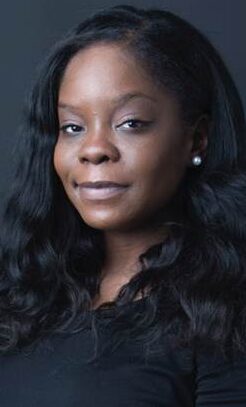 “And by the way, diverse voices are very diverse themselves. There’s not a monolithic view here. And it really helps our conversations, it helps our coverage, especially out in the country politically. And you get a lot of different kinds of stories from reporters who have roots in different communities. You get stories we otherwise we wouldn’t cover. I can think of Erika Green (pictured), the kind of stuff she’s done.”
“And by the way, diverse voices are very diverse themselves. There’s not a monolithic view here. And it really helps our conversations, it helps our coverage, especially out in the country politically. And you get a lot of different kinds of stories from reporters who have roots in different communities. You get stories we otherwise we wouldn’t cover. I can think of Erika Green (pictured), the kind of stuff she’s done.”
Samuel, given five seconds, said, “I think if you look at all the stories we talked about, we can’t cover it without diverse voices.”

Sid Cassese, From Inmate to Great Reporter
Sid Cassese, who became a journalist after learning the underlying skills in prison, then rose to become a consummate reporter for the Richmond (Va.) Times-Dispatch and for 42 years at Newsday on Long Island, N.Y., died Friday at 83.
For unspecified reasons, “Sid underwent an amputation surgery and it changed him — physically and mentally and as a friend who loves him,” a friend, Sophia Johnson, former public relations professional at the Village of Freeport, N.Y., messaged Journal-isms Tuesday.
“I know that who he became, isn’t how he deserved to live. To truthfully share what I know regarding his death, with all things considered — may he rest in peace.”
Time magazine recounted some of Cassese’s early story in 1971: “Born in Harlem, Cassese, 32, has served eleven years of a 30-year sentence in the Virginia State Penitentiary for armed robbery. When free from menial prison jobs in the bookbindery and pants factory, he nurtured a longtime interest in writing by taking a correspondence course in English literature and teaching himself touch typing. Last spring, because of good behavior and the fact that he is within a year of parole eligibility, Cassese was transferred to the city jail and placed in the state’s ‘work release’ program. . . .
“A friend on the outside recommended Cassese to Times-Dispatch Publisher David Tennant Bryan, who agreed to give him a trial last month. City Editor Earle Dunford is pleased with Cassese’s work: ‘He’s still learning the business, but as things stand now, we hope to take him on if the parole works out.’ “
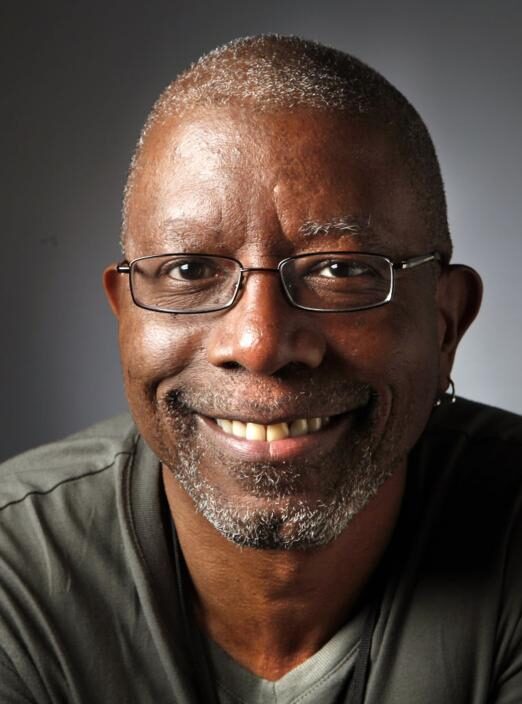 It did. In 2005, when Glenn Proctor became the first Black top editor of the Times-Dispatch, Journal-isms reported the published reaction of columnist Michael Paul Williams (pictured), who in 2021 would win the Pulitzer Prize for commentary.
It did. In 2005, when Glenn Proctor became the first Black top editor of the Times-Dispatch, Journal-isms reported the published reaction of columnist Michael Paul Williams (pictured), who in 2021 would win the Pulitzer Prize for commentary.
“Cassese, in his own right, is a historic figure in the history of The Times-Dispatch.
” ‘He recalled that day in 1971 when Cassese, on work release from prison, walked into the T-D newsroom.
“‘ ‘There was not another face with my color anywhere in the room, and there were more frowns than smiles, although not necessarily because of my color as I brought a lot of real baggage with me. But I was there, breaking some kind of barrier or two.
“‘ ‘And despite all the bull in between, mine and others, I’m here to see another barrier hurdled in this once Capital of the Confederacy. It ain’t Colin Powell sitting in the big white one, but it’s something.’
“Cassese worked part-time; the first black full-time black journalist, Bonnie Winston, arrived in 1979.”
A lover of jazz, Cassese served as editor of Jazz Magazine from 1976 to 1978, according to his LinkedIn page.
But it was at Newsday where Cassese had the most lasting impact.
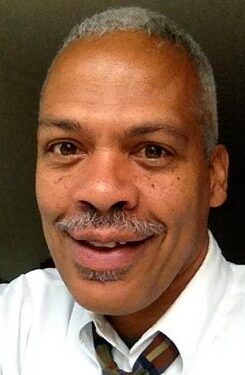 “Sid was an institution at Newsday when I arrived there in 1996,” Martin C. Evans (pictured) messaged Journal-isms over the weekend.
“Sid was an institution at Newsday when I arrived there in 1996,” Martin C. Evans (pictured) messaged Journal-isms over the weekend.
“He was a bearer of institutional knowledge regarding the sociology and politics of Nassau County, an early destination of aspirational black families who were seeking the benefits of suburban life beginning in the 1950s.
“He was observant of how the dream of mobility into the middle class conflicted with the matter-of-fact white supremacy that mostly defined the housing patterns, school systems, political alliances and other aspects of what were among America’s first suburbs — Hempstead and its nearby satellites — as those suburbs were being woven into the social fabric of post-war America.”
Newsday hired Cassese as a staff writer in 1974, Craig Schneider reported Saturday for the newspaper, and Cassese remained there until his retirement in 2016.
“In 1978, he received a prestigious Lucius W. Nieman Fellowship to Harvard, where he spent a year studying the workings of government. His time at Harvard was pretty heady stuff for a man ‘of my background,‘ Cassese told Black Enterprise magazine in 1981. ‘But I came back more than ever wanting to be a producer of top notch material.’ “:
Schneider also wrote, “Time and again, those who knew Cassese spoke of his great stories, the personal ones he shared over lunch or across newsroom desks.”
For William Murphy, a former Newsday reporter who worked with Cassese, “It was Cassese’s story about when he found out that his pacemaker really worked. Cassese had been stopped by a police officer for speeding, and when he was ordered out of the car, he immediately fell to the ground groaning, Murphy recalled.
” ‘The cop kept saying, “I didn’t touch him. I didn’t touch him,” ‘ Murphy said. But the pacemaker kicked in and Cassese survived the health scare, he said.
“For Monte Young, who rose from a Newsday reporter to his current post as an assistant managing editor, it was two pieces of advice. One was, ‘Newsday tells stories.’
“The other was Cassese’s advice on reporting, which Young keeps pinned up at his desk to this day: ‘A good reporter will let you talk as long as it takes to say something stupid.’ “
‘Damn, She’s Fine!’ . . . a ‘Show Stopper’ Exits
February 12, 2023
Stylish Reporter Bernadette Carey Dies at 83
Al Dia Staff to be ‘Integrated’ into Morning News
News About Racial Struggle Said to Repel Advertisers
Emotion, Pride, Determination at DuPont Awards
Protecting Female Journalists, Especially of Color
5 Ways to Improve Diversity of Coverage
Charlotte Moore English Broke Broadcast Ceilings
Nicaragua Frees 222, Including Journalists
Short Takes: Soul newspaper; LaSharah Bunting; Calvin Watkins; donations to minority-led groups; Ozy; exposure to pesticides; Stephen Vittoria, Mumia Abu-Jamal and Shaquille O’Neal; Akili Franklin; whiteness of Italian media; arrest in Indian journalist’s slaying; Somalia taking foreign outlets off the air.
Support Journal-ismsDonations are tax-deductible.
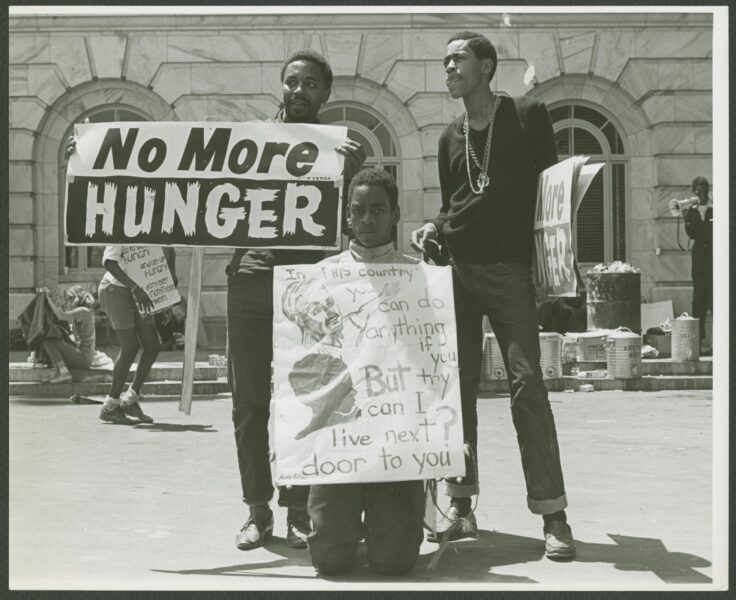
Stylish Reporter Bernadette Carey Dies at 83
Ten years ago, a few Black male journalists were emailing about their former Washington colleague Bernadette Carey. “I’m glad to know that all of you fellows still have fire in your eyes and minds, if not elsewhere, when it comes to Bernadette,” wrote Hollie I. West, a former Washington Post cultural writer.
“One day she came into the newsroom dragging that gorgeous mink coat, and it WAS beautiful, switching down the row in front of the library as she made her way back to the Women’s Section.”
 Nick Von Hoffman, the columnist, “was sitting astride a desk just off to her right. He jumped up and blurted out, ‘You are beautiful!’ That section of the newsroom went silent. Bernadette gave him a coy smile, fluttered her eye lashes and shook her coat in his direction as she added some extra spice to her switch in the stroll to her desk. We fell out!” She was also called “a show stopper” that the Post wasn’t ready for. (Photo: Carey with David Frost; credit: Scottish Daily Mail.)
Nick Von Hoffman, the columnist, “was sitting astride a desk just off to her right. He jumped up and blurted out, ‘You are beautiful!’ That section of the newsroom went silent. Bernadette gave him a coy smile, fluttered her eye lashes and shook her coat in his direction as she added some extra spice to her switch in the stroll to her desk. We fell out!” She was also called “a show stopper” that the Post wasn’t ready for. (Photo: Carey with David Frost; credit: Scottish Daily Mail.)
Bernadette Carey Smith, her married name, died Dec. 5 without benefit of an obituary in either of the two major newspapers where she worked, The New York Times and The Washington Post. She was 83 and lived in Bronxville, Westchester County, N.Y. A paid death notice appeared in the Gannett Co.’s LoHud.com in Westchester.
“Bernadette had a notable career as a reporter for both the New York Times and the Washington Post, and later worked as an editor at Vogue magazine and as an associate producer with ABC News. She also worked for the Johnson Publishing Company and as a free-lance writer and publisher before becoming a residential real estate agent in Bronxville,” the notice read. [Lisa Westrich, a family member, told Journal-isms on Feb. 14 that Carey had “general health issues” and died in Bronxville of heart failure.]
Carey called herself editor-in-formation of what in 1969 became Essence magazine, and in his 2014 memoir, “The Man From Essence,” magazine co-founder Edward Lewis described their first meeting, in New York.
” ‘Damn, she’s fine,’ whistled one of the partners under his breath. It wasn’t as if we didn’t all think this too. Clarence, Cecil and I were seated round the small conference table in our office on East 30th Street, openly staring at the young lady Jonathan had just ushered in. . . .” The references were to Clarence Smith, Cecil Hollingsworth and Jonathan Blount.
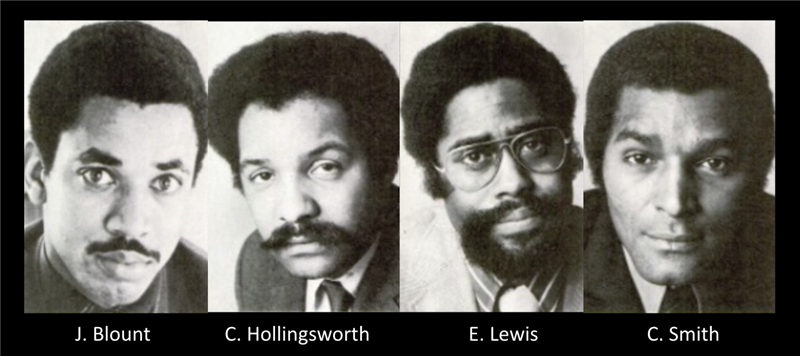
“Bernadette was a beauty, but more than that she had style, class, and the tinge of sophistication young men like us found so appealing in slightly older women. . . . We would later learn that she was also dating David Frost, the British TV talk show host who was then the biggest thing on nighttime television next to Johnny Carson. . . .”
Carey wrote Journal-isms in 2013, “Despite what has been said, written and attested to, when I was first approached by members of the Hollingsworth Group to consult about the formation of a new black audience magazine, it was I who suggested doing [a] women’s book, since I had already been collecting editorial and advertising background on doing one.
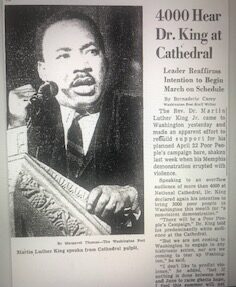 “I also suggested not competing with Ebony by doing the general market magazine they had in mind, and I agreed to come on board only if I received a percentage stake in what we were doing. (Photo: Bernadette Carey story from April 1, 1968, three days before Martin Luther King’ Jr.’s assassination.)
“I also suggested not competing with Ebony by doing the general market magazine they had in mind, and I agreed to come on board only if I received a percentage stake in what we were doing. (Photo: Bernadette Carey story from April 1, 1968, three days before Martin Luther King’ Jr.’s assassination.)
“When I failed to get a contract including this, and having it signed in a timely fashion, the four members of the Hollingsworth Group (all men) decided without even mentioning it to me that they were bringing Gordon Parks on board to be editorial director, and they were giving him the 5% stake in the enterprise they had promised. I walked out the next evening, leaving only the tape recordings they had made of our meeting discussions as to what I wanted to do at the magazine. I never gave them or discussed my business plan. . . .”
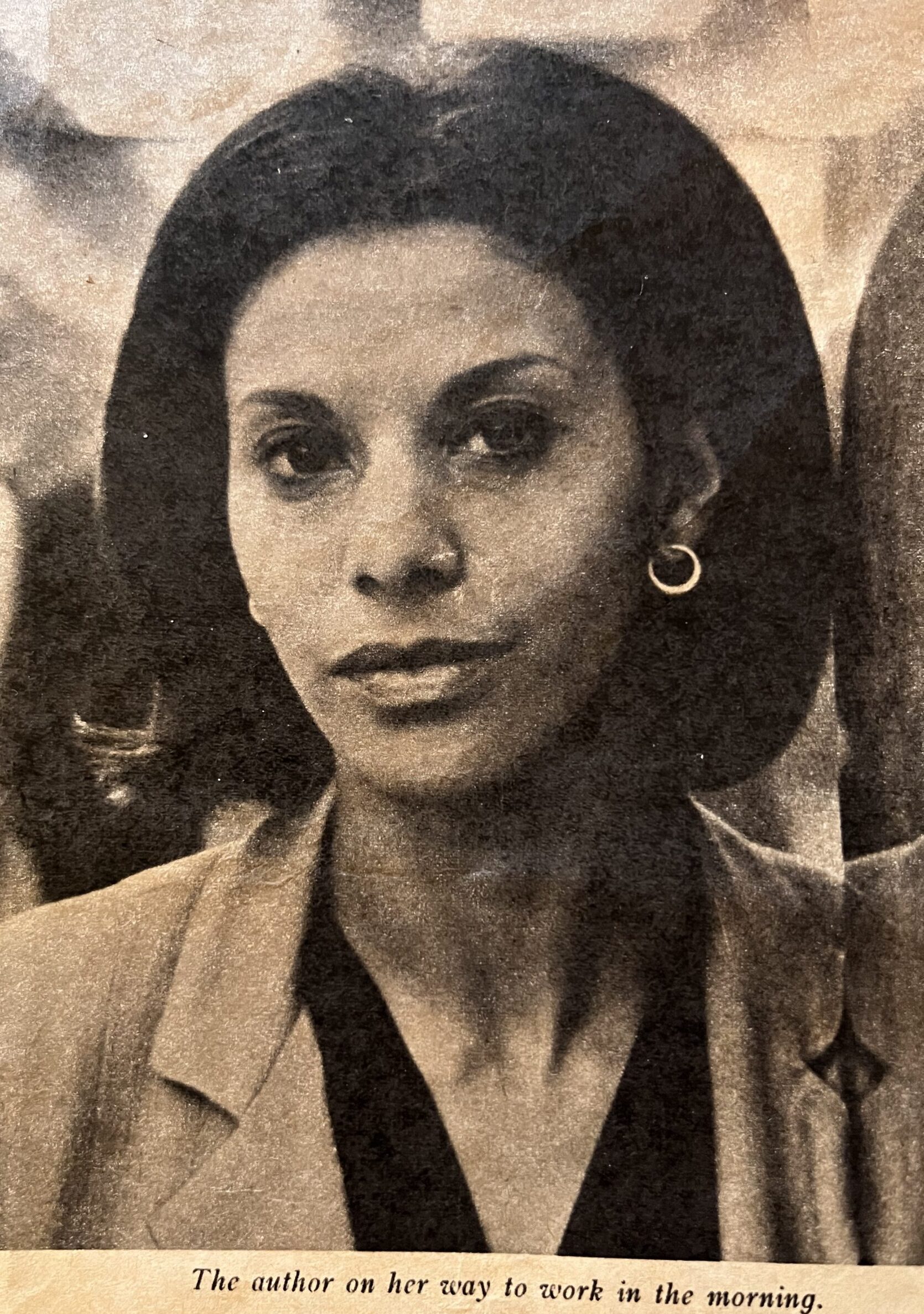 A 1961 Smith College graduate, Carey was one of the first Black women to report at either the Times or the Post. She wrote feature stories for the Times in 1965, 1966 and 1967 that would appear in the “Food, Fashion, Family and Furnishings” section.
A 1961 Smith College graduate, Carey was one of the first Black women to report at either the Times or the Post. She wrote feature stories for the Times in 1965, 1966 and 1967 that would appear in the “Food, Fashion, Family and Furnishings” section.
At the Post, while in the old “For and About Women” section, which in 1969 became Style, Carey took on weightier subjects, such as the 1968 Poor People’s Campaign, a protest planned by the Rev. Martin Luther King Jr., and executed after King was assassinated.
There were others, such as “A Profile of Brutality: Family of 9 Flees in Fear to District” in 1968, “Law Students Hold Boycott at Howard” in 1969, and, in February 1968, a report from inside Washington’s Women’s Detention Center, “Once You’re in the Women’s Jail, ‘You Don’t Do Nothin’.”
“All of the sentenced prisoners, with one exception, are Negroes,” she wrote.
“Most of the staff of 42 are white.
“I arrived on a weekday morning as a reporter to spend 24 hours as a sentenced prisoner. . . .”
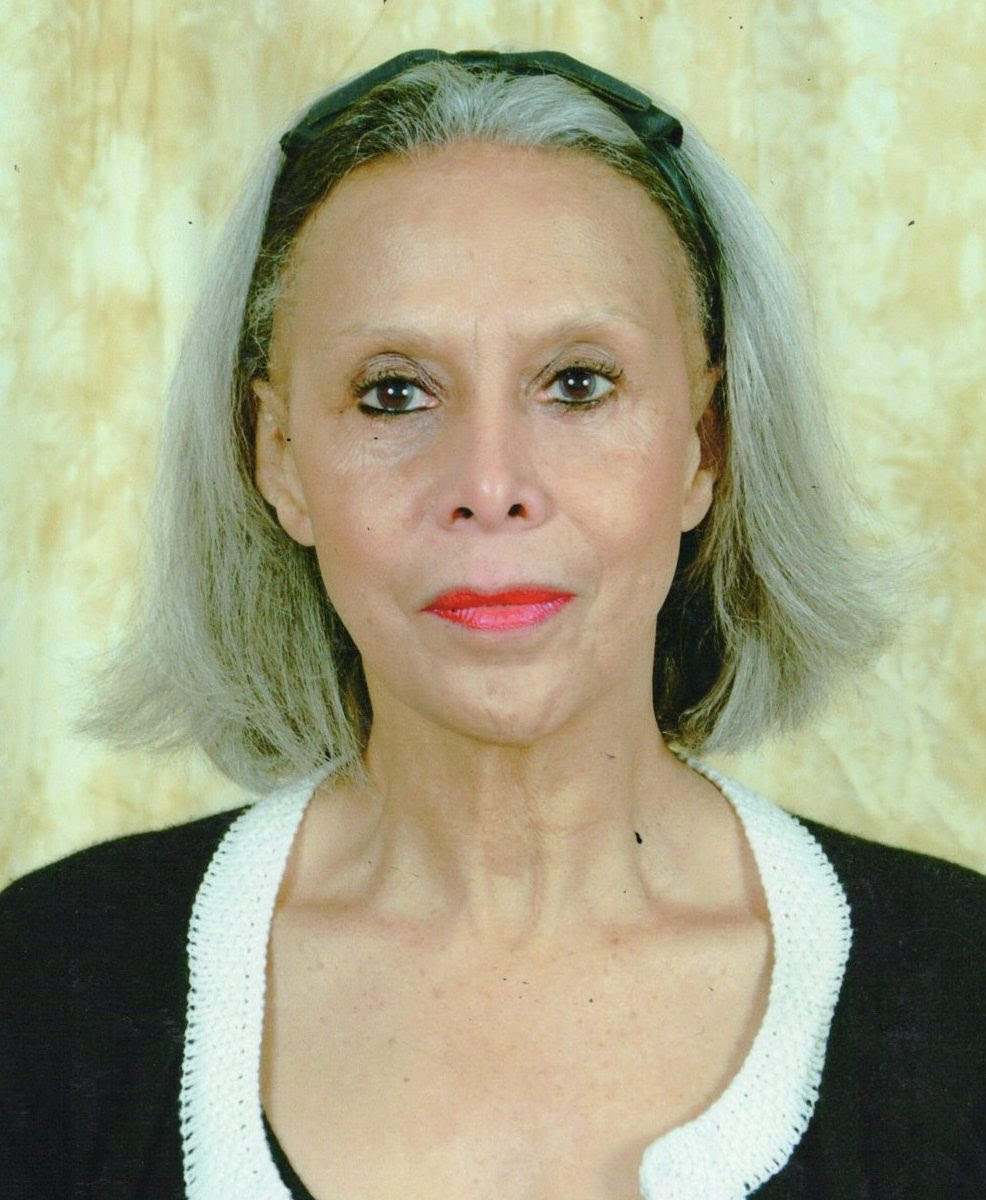 In the world of gossip, those subjects were secondary to Carey’s dating such public figures as television anchor Max Robinson and Frost. The Scottish Daily Mail included Carey in a 2013 article about women Frost had dumped. The two met “at a fashionable party in the Hamptons. ‘He was very bright, very nice, very charming. We spent the evening talking, and he took me to the train station,’ recalls Bernadette, now 73 and still living in New York with her husband of 33 years, Bruce Smith. She remembers the two years of their relationship as a charmed and glamourous time. . . .” (Pictured: funeral home photo)
In the world of gossip, those subjects were secondary to Carey’s dating such public figures as television anchor Max Robinson and Frost. The Scottish Daily Mail included Carey in a 2013 article about women Frost had dumped. The two met “at a fashionable party in the Hamptons. ‘He was very bright, very nice, very charming. We spent the evening talking, and he took me to the train station,’ recalls Bernadette, now 73 and still living in New York with her husband of 33 years, Bruce Smith. She remembers the two years of their relationship as a charmed and glamourous time. . . .” (Pictured: funeral home photo)
Carey messaged Journal-isms in 2013, “After leaving Essence I spent a year at Vogue, got dumped by David Frost for Diahann [Carroll], then went to Chicago to do advertising and public relations for Fashion Fair Cosmetics.
“I married[,] moved back to New York where I’ve had a moderately successful real estate sales career.
These days I’m just a happy Bronxville Village housewife. . . .
“If you Google me as Bernadette Carey Smith, you will find my real estate office posting — it’s a bit thin these days as I am an emeritus associate broker — and only work with old customers and friends. There is also posted, something I wrote for the Times Metropolitan Diary several months ago that they ran. [It began, “Dear Diary: In the early 1970s, I attended a small dinner party at Mrs. Jacqueline Onassis’ Fifth Avenue apartment. . . .”]
“There is a quite recent photo of me in the real estate posting. I’m not fat, and someone who was at my house for brunch on Sunday, seems to think I’m not too bad looking for my age.”
The LoHud.com notice concluded, “During her career she produced insightful commentary on politics, fashion and local events, interviewing and befriending many notable people during her lifetime. Bernadette was a trailblazer at a time when women of color were often relegated to lesser roles. In lieu of flowers, the family requests that donations be made in her honor to the Museum of Modern Art (www.moma.org).”
Al Dia Staff to be ‘Integrated’ into Morning News
Al Dia (“Up to Date”), the Spanish-language offshoot of the Dallas Morning News launched as a daily in 2003, will become a weekly, its staff integrated “throughout the newsroom” of the Morning News, the company announced.
The move was greeted by protests from the Dallas News Guild and the Society of Professional Journalists.
 The Guild said Thursday, “Al Día has been covering the Hispanic community in North Texas for 19 years. Throughout this journey, it has created a bridge with the community and provided a reliable means of communication with Spanish-speaking readers long underserved by traditional media outlets.
The Guild said Thursday, “Al Día has been covering the Hispanic community in North Texas for 19 years. Throughout this journey, it has created a bridge with the community and provided a reliable means of communication with Spanish-speaking readers long underserved by traditional media outlets.
“Dismantling this team affects not only the employees but also the entire Hispanic community of North Texas.
“It is with sadness that the Al Día team believes it has no choice but to accept the company’s decision. However, this does not mean that we agree with how this transition was communicated or undertaken.
“Al Día reporters have been radically underpaid and overworked for years, a problem the Dallas News Guild is working to correct, and the team believes the treatment it faced this week added to the historic disparity between the company’s English and Spanish-speaking staff.”
SPJ said, “The reassigning of Al Día staff is part of a worrying trend of news publishers cutting Spanish-language coverage. In 2019, The New York Times, BuzzFeed News Mexico and HuffPost Mexico stopped producing Spanish-language coverage. Tribune Publishing closed Hoy, a Spanish-language weekly newspaper in Chicago. Although content is sometimes still published in Spanish, as will be the case at the Dallas Morning News, it is no longer original reporting.”
 Grant Moise (pictured), CEO of the DallasNews Corp., issued this statement:
Grant Moise (pictured), CEO of the DallasNews Corp., issued this statement:
“The Dallas Morning News and Al Dia remain committed to reaching the growing Hispanic audience in North Texas. We will continue to publish Al Dia every Wednesday in print and aldiadallas.com will continue to publish daily. The Al Dia team is now reporting into the same content areas as reporters from The Dallas Morning News in an effort to better serve the growing Latino community in North Texas. This community is not only our future, but it is the present, and it deserves enhanced coverage from our newsroom.”
“Additionally, we are and remain committed to publishing stories in Spanish and written in Spanish. The integration of the team throughout the newsroom is so that more of our journalists are focused on our Hispanic community and therefore we have more content for our diverse readership.
“We think it’s important to integrate our team because North Texas is home to more Hispanics born in the United States than most other areas in the country. This is what the Census tells us, not anyone else.
“As such, far more Hispanics in North Texas are either bilingual or speak Spanish at home thus our plan is and always has been to continue to publish content written in Spanish and English.”
Alfred Liggins responded to a question about TV One’s public-affairs commitment at 2:04:29; Roland Martin began his remarks at 4:32:40. (Credit: FCC/YouTube)
News About Racial Struggle Said to Repel Advertisers
TV One, the Black-oriented cable channel that launched 19 years ago on Martin Luther King Day, is now skimpy on news and public affairs programming partly because “News is very difficult to do in minority spaces because a lot of it is about struggle, and advertisers have difficulty now with that, and that doesn’t always garner a large audience,” according to CEO Alfred Liggins. He nonetheless acknowledged that “telling our own stories” has “kind of been like the bedrock of the company’s mission.”
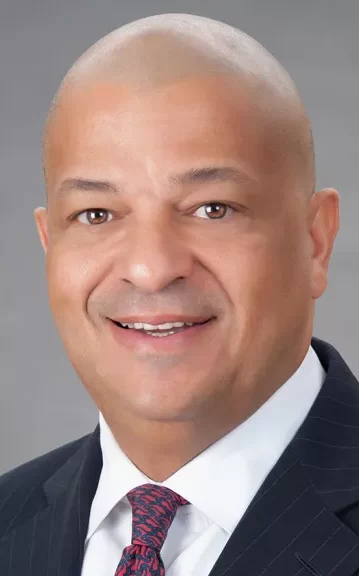 Liggins (pictured) was speaking Tuesday at a day-long forum, sponsored by the Federal Communications Commission, on how to achieve more diversity among media owners.
Liggins (pictured) was speaking Tuesday at a day-long forum, sponsored by the Federal Communications Commission, on how to achieve more diversity among media owners.
As was noted in this column, while the rest of the nation was gripped on Jan. 6, 2021, by the insurrectionist attack on the U.S. Capitol, TV One was showing “Family Matters: We’re Going to Walt Disney World.”
By contrast, entrepreneurial journalist Roland Martin, whose shows once constituted nearly all of the public affairs programming on TV One, later told the group, “If we’re not serving a public interest, then why do they still have those licenses? And so, we need to make sure in whatever we’re doing, that we’re challenging power at every single turn.”
 Martin (pictured) also disclosed that he has a stake in an issue now before the FCC: whether it should approve a merger of Standard General, whose founding partner Soo Kim is Asian American, with Tegna, which owns 64 TV stations in 51 U.S. markets. The transaction would bolster the ranks of media companies headed by a person of color, but critics have expressed concerns that the deal would restrict access to local news coverage, cut jobs and raise prices for consumers.
Martin (pictured) also disclosed that he has a stake in an issue now before the FCC: whether it should approve a merger of Standard General, whose founding partner Soo Kim is Asian American, with Tegna, which owns 64 TV stations in 51 U.S. markets. The transaction would bolster the ranks of media companies headed by a person of color, but critics have expressed concerns that the deal would restrict access to local news coverage, cut jobs and raise prices for consumers.
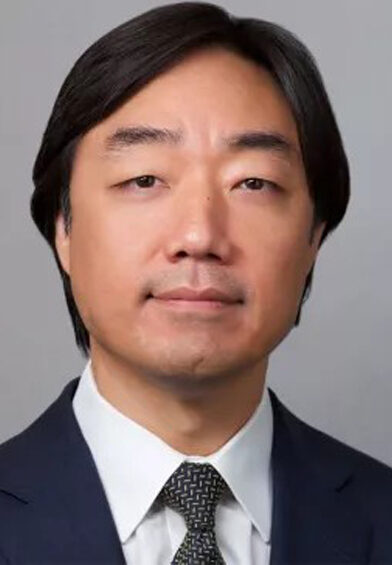 “So you have Soo Kim (pictured), who has a deal that’s gone before the FCC,” Martin said. “And I’ve been talking to him and his team for the last several months, and so, if that deal buying Tegna closes, we’re going to have a content partnership, but also a back-end partnership when it comes to advertising as well.
“So you have Soo Kim (pictured), who has a deal that’s gone before the FCC,” Martin said. “And I’ve been talking to him and his team for the last several months, and so, if that deal buying Tegna closes, we’re going to have a content partnership, but also a back-end partnership when it comes to advertising as well.
“Because for me, and I’ve been saying for a long time, we can’t be just sitting here operating as if it’s only just us. How do we create partnerships? How do we create joint ventures? How do we create opportunities even with mainstream companies, when it comes to assets, when it comes to what they own, when it comes to their towers and their signals? We do that by being able to leverage what our power is, and our power is that we have numbers.”
He noted that white people will no longer make up a majority of Americans by 2043, according to census projections.
The symposium, “Expanding Digital and Media Ownership Opportunities for Women and Minorities,” hosted by the FCC’s Communications Equity and Diversity Council, took place less than a month after the agency reported that Blacks have majority ownership in only 2 percent of all commercial broadcast stations, Asians 1 percent, Hispanics or Latinos 6 percent. Women have majority ownership in 9 percent.
 Panelists repeatedly called for an overhaul of FCC regulations that they said were outdated and holding them back, and Asian American speakers, particularly, urged that their group be taken as seriously as other people of color. “We’re not even an afterthought,” said Diana WP Ding (pictured), founder and CEO of Ding Ding TV.
Panelists repeatedly called for an overhaul of FCC regulations that they said were outdated and holding them back, and Asian American speakers, particularly, urged that their group be taken as seriously as other people of color. “We’re not even an afterthought,” said Diana WP Ding (pictured), founder and CEO of Ding Ding TV.
Liggins’ comment about advertisers was part of a response to a question from this columnist: “People are advocating diversity in broadcasting, but my question is, toward what end? Is this just to enrich some people in a diverse way? Or is there a component that requires public affairs and news programming?”
Liggins replied, “It’s part of the fabric of all of our shows, our personalities on the radio side, whether it was Tom Joyner or Ricky Smiley or D.L. Hughley. You know, we just launched a new syndicated show with a woman, Amanda Seales.
“These people are on the radio because they actually want to air their viewpoints and have impact. They’re not on the radio telling jokes, right? . . . or just playing music. It’s about impacting the audience and having commentary and influence.”
Faith Bautista, founder and CEO of Chime TV, said remotely from the Philippines, “During the Monterey Park shooting, we have a show on Chime TV, ‘Owning a Piece of America,’ and this is where we really told the story, you know, how these people died, and showing that we’re all in this together, and to have this Asian news locally, I think it was really helping a lot of our community also, that they understand that they’re also being heard. So, ‘Owning a Piece of America,’ is to really inform, empower, inspire. . . .”
- Barbara Arnwine, Trice Edney News Wire: It’s time to irrigate the fallow ground of minority media ownership (Jan. 24)
- Stephen Battaglio, Los Angeles Times: Roland Martin believes in Black-owned media, and he’s using his own money to prove it
- Amy Maclean, Cablefax: Retrans Tussle Breaks Out at FCC Symposium
- Radio Ink: Examining The Gender Gap
- Radio Ink: Starks Sets Tone For FCC Diversity Symposium
- Alex Sherman and Lillian Rizzo, CNBC: What will TV look like in three years? These industry insiders share their predictions
- Geoffrey Starks, FCC: Remarks of Commissioner Geoffrey Starks at the FCC Communications Equity and Diversity Council’s Media Ownership Diversity Symposium
- TVNewsCheck, sponsored by Allen Media Group: Byron Allen: Too much talk, not enough action on advertising equity (Feb.13)
- Jim Winston & Dr. Benjamin F. Chavis Jr., National Association of Black Owned Broadcasters: Diversifying American Media Ownership Must Become a National Priority (Aug. 23)
Emotion, Pride, Determination at DuPont Awards
“Dr. Stuart Lord is one of the thousands of people to come forward over the years to tell their story of abuse at the hands of members of the Boy Scouts of America, including many here in Georgia,“ Lisa Rayam reported in June for WABE-TV in Atlanta.
“Their accounts are included in the recently released documentary ‘Leave No Trace,’ which tells of the downfall of the once-revered American institution that filed for bankruptcy in 2020. . . .”
Lord’s website adds, “In time, by embracing his spirituality, reporting his abusers, and eventually forgiving those who hurt him so greatly, Lord transcends his life of fear, shame, and anger to heal and embody his deepest calling to serve with a fully awakened heart. His life is dedicated to social justice.”
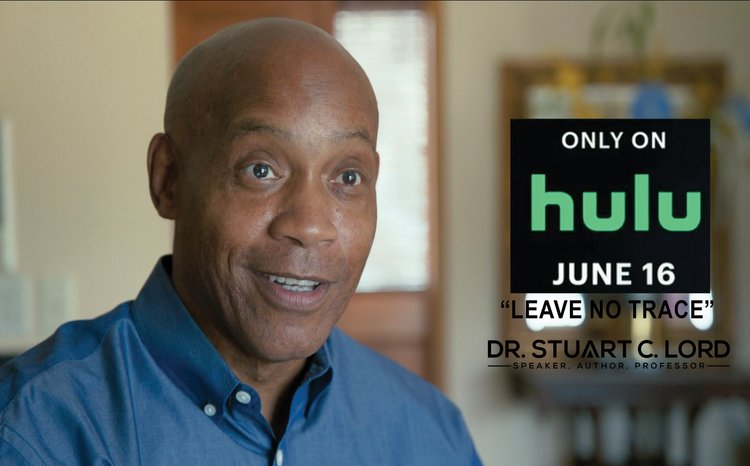 On Monday, Lord (pictured), who became the first Black president of Naropa University in Boulder, Colo., was on stage in New York for the DuPont-Columbia Awards. ABC News Studios and Hulu won for “Leave No Trace: A Hidden History of the Boy Scouts.” The audience saw a clip of Lord emotionally discussing his abuse by a fellow African American. (1:03:20 on video)
On Monday, Lord (pictured), who became the first Black president of Naropa University in Boulder, Colo., was on stage in New York for the DuPont-Columbia Awards. ABC News Studios and Hulu won for “Leave No Trace: A Hidden History of the Boy Scouts.” The audience saw a clip of Lord emotionally discussing his abuse by a fellow African American. (1:03:20 on video)
Among the other winners:
- “This American Life was honored for Talking While Black, an audio report about Black Americans caught up in the backlash against Black Lives Matter, Michael Malone reported for Broadcasting & Cable. (32:17 on video)
- “CBS News’ 60 Minutes won for its National Security in the Information Age report, which comprised four related stories reported by Bill Whitaker that documented in chilling terms the clear and present danger of ongoing cyber attacks, primarily by Russia, to this country’s infrastructure and national security,” wrote Mark Mwachiro for TVNewser. (20:18 on the video)
- “WBRZ-TV Baton Rouge and Chris Nakamoto for “Murder – Lies – Hidden Evidence: Holding Louisiana State Police Accountable.” “Following a tip, WBRZ’s investigative team obtained internal emails and leaked video of the death of an unarmed Black man in police custody and exposed a pattern of deception at the highest levels of the Louisiana State Police.” (26:49)
- “Finding Tamika.” “Tamika Huston went missing in 2004, and pieces of her skeleton were found years later. Her life and senseless death are explored in this innovative podcast series that asks why so many Black women like her go missing each year,” Dade Hayes reported for Deadline. (52:44 on video)
- “Gimlet Media | Spotify. Stolen: Surviving St. Michael’s.” “This intimate yet expansive podcast series began as one reporter’s journey to untangle her own family mystery and ended as a revealing condemnation of abuse in Canada’s residential school system and its painful legacy of multi-generational damage.” (58:27 on the video)
Co-host Amna Nawaz “gave a shout-out to her father, who graduated from Columbia’s journalism school. ‘He taught me to always ask tough questions, to listen carefully, to choose my words wisely,’ she said. ‘That’s what makes good journalism, and that is why we need at this moment in history more good journalism.’ (16:22 on video)
“This year’s jurors include jury chair Madhulika Sikka, Lynne Adrine, Nina Alvarez, June Cross, Mark Jurkowitz, Mark Lukasiewicz, David Rummel, Robert Smith and Mark Whitaker,” Hayes reported for Deadline.
- Brian Lehrer with Jelani Cobb, WNYC Radio, New York: Teaching and Rewarding Journalism
Research assistance: Andrew Mayer, Jerry McCoy of D.C. Library People’s Archive
Protecting Female Journalists, Especially of Color
“In just the first half of 2020, we documented 25 major organized trolled campaigns targeting women journalists — a visible growth in comparison to 17 cases in the respective period last year,” Katarzyna Mierzejewska reported in 2020 for Ms. Magazine. “This is just a tip of the iceberg, as the statistics cannot possibly consist of a solid dose of sexualized and hateful comments that female reporters see daily on their social media.
“Additionally, our research shows that women of color are 34 percent more likely to be mentioned in abusive or problematic tweets than white women. Black women are disproportionately targeted, being 84 percent more likely than white women to be mentioned in such tweets. Trolling therefore goes along not only with sexist but also racist rhetoric. . . .”
On Feb. 3 in Editor & Publisher, Michael Bugeja, a distinguished professor of journalism at Iowa State University, reiterated three steps that can be taken by employers:
- “Use technology to identify the IP addresses of abusers, reporting any threats to authorities.
- “Contact abusers and demand apologies.
- “Take risk-assessment measures to ensure the safety of their newsrooms and offer an array of support services to ensure the mental well-being of employees.”
5 Ways to Improve Diversity of Coverage
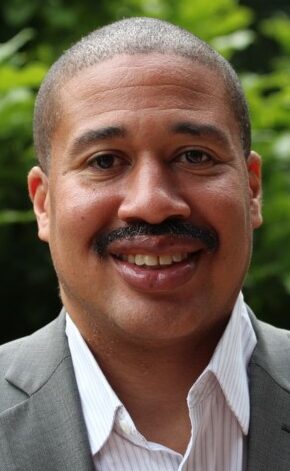 “The American Press Institute worked with the Pittsburgh Black Media Federation and five news organizations in the metropolitan region to assess and improve how multiple news organizations in a single area cover communities of color,” Letrell Deshan Crittenden (pictured) reported Wednesday for the institute.
“The American Press Institute worked with the Pittsburgh Black Media Federation and five news organizations in the metropolitan region to assess and improve how multiple news organizations in a single area cover communities of color,” Letrell Deshan Crittenden (pictured) reported Wednesday for the institute.
“We think these findings are useful for any news organization looking to assess the diversity, equity and inclusion within and outside its newsroom. It may also be useful within the classroom for both undergraduate and graduate students. . . .
- 2. Strengthen community engagement efforts, including collaborating with other newsrooms when feasible . . .
- 3. Make a greater effort to ensure that newsroom staff members have the chance to thrive . . .
- “4. Build infrastructure that allows you to assess your own newsgathering practices, notably as they pertain to sourcing and content. And take a look at your style guides, too! . . .
- “5. Collaborate, collaborate, collaborate!” . . .
Charlotte Moore English Broke Broadcast Ceilings
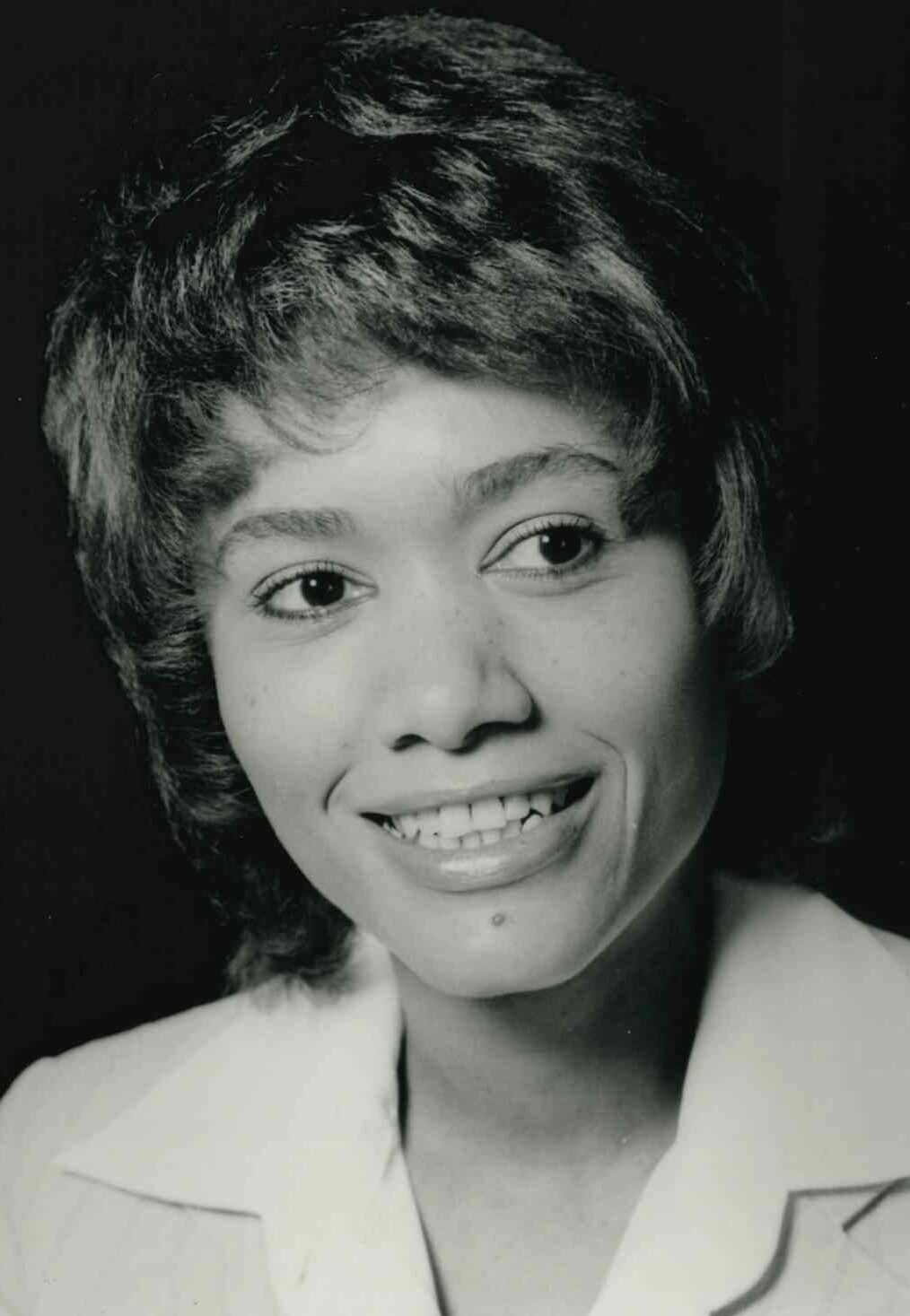 “Charlotte Moore English (pictured) was a pioneer, breaking barriers and glass ceilings for women managers in broadcasting,” according to an announcement posted on the website of the Johnson County Funeral Chapel and Memorial Gardens in Kansas. English, 74, died Jan. 29. No cause of death was listed, and the funeral home was unable to persuade family members to return a call seeking more information.
“Charlotte Moore English (pictured) was a pioneer, breaking barriers and glass ceilings for women managers in broadcasting,” according to an announcement posted on the website of the Johnson County Funeral Chapel and Memorial Gardens in Kansas. English, 74, died Jan. 29. No cause of death was listed, and the funeral home was unable to persuade family members to return a call seeking more information.
“She was the first woman and first African American broadcast boss in Kansas City history,” the notice continued. “In January 1993 Scripps-Howard Broadcasting Inc. named Charlotte Moore English Vice-President and General Manager of KSHB Channel 41.
“When asked if being the first woman and African American created added pressure, Charlotte English replied: ‘I don’t like to think of it that way. I just want to do a good job. But I don’t ignore that fact. I hope I’m an inspiration to other women and other African Americans.’ Prior to the promotion she had been station manager, the #2 position, since May 1990. . . .”
Sharon Stevens, a retired broadcast journalist in St. Louis, messaged Journal-isms, “To me, she was an unsung sheroe, quietly getting the job done.”
Visitation is scheduled for Tuesday, Feb. 14, at 9 a.m. Central time at the funeral chapel, 11200 Metcalf Ave., Overland Park, KS 66210, with a livestreamed service to start at 10.
Nicaragua Frees 222, Including Journalists
Nicaragua released 222 political prisoners, including journalists and an American citizen, in a deal negotiated with Washington that marks one of the biggest prisoner releases ever involving the United States, according to senior Biden administration officials, Maria Abi-Habib reported Thursday for The New York Times.
 “One of those traveling to the United States was Cristiana Chamorro Barrios (pictured), a journalist who was a leading contender in Nicaragua’s presidential elections held in 2021.
“One of those traveling to the United States was Cristiana Chamorro Barrios (pictured), a journalist who was a leading contender in Nicaragua’s presidential elections held in 2021.
“Just months before the elections, Ms. Chamorro was disqualified as a candidate. Government forces then raided her home and detained her minutes before she was scheduled to give a news conference to speak about her disqualification and criticize the government’s interference in the polls.
“For Carlos Fernando Chamorro Barrios, the news could not have been more of a surprise. Beside his sister, Cristiana, his brother, Pedro Joaquín, was also freed on Thursday. Both had been jailed for their opposition to the Ortega family and Mr. Chamorro had expected to possibly never see them again. . . .”
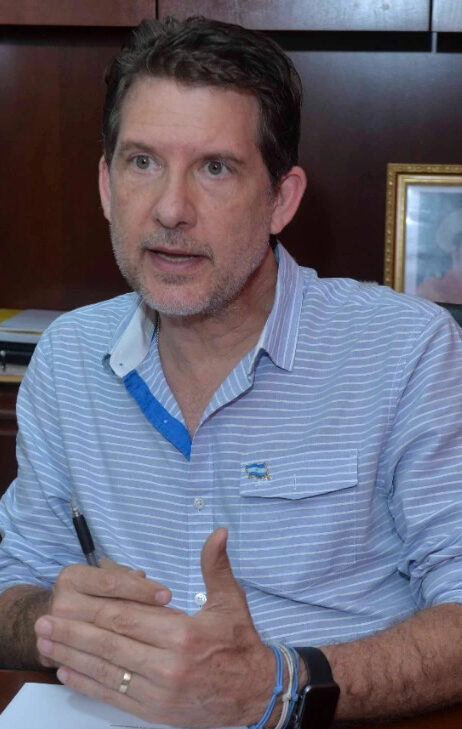 In the Washington Post, Mary Beth Sheridan and Trish Wilson wrote Friday, “Juan Lorenzo Holmann Chamorro (pictured, by La Prensa) was drifting off to sleep in Nicaragua’s notorious El Chipote prison this week when the guard appeared. The newspaper publisher had been locked up for 545 days, a political prisoner in perhaps the Western Hemisphere’s most repressive country. Now the guard was ordering him to get up. Put on civilian clothes, he said.
In the Washington Post, Mary Beth Sheridan and Trish Wilson wrote Friday, “Juan Lorenzo Holmann Chamorro (pictured, by La Prensa) was drifting off to sleep in Nicaragua’s notorious El Chipote prison this week when the guard appeared. The newspaper publisher had been locked up for 545 days, a political prisoner in perhaps the Western Hemisphere’s most repressive country. Now the guard was ordering him to get up. Put on civilian clothes, he said.
“Holmann, 56, slipped on a pair of jeans his wife had recently brought him. He was led to a line of buses filling with inmates. The vehicles snaked through Managua’s dark streets, and Holmann wondered where he was headed. To a different prison? Another ‘trial?’
“Then his bus turned right, onto an access road into Managua’s Augusto C. Sandino International Airport. Holmann and 221 others — nearly all of Nicaragua’s imprisoned opposition — were being freed, on the condition they leave the country. They boarded a U.S. government-chartered flight; within hours, they landed at Dulles International Airport — beneficiaries of the unexpected mass release by the authoritarian government of Daniel Ortega and a secret Biden administration operation to pick them up and take them in.
“ ‘I don’t know if it’s a dream or it’s reality,’ a gaunt Holmann told reporters. . . .”
The Committee to Protect Journalists identified a third freed journalist, Miguel Mendoza Urbina, a sports and political commentator.
Carlos Martinez de la Serna, CPJ’s program director, said the deportation “brings a sense of relief that they will no longer have to spend years in prison,” but called on authorities to “guarantee that the media can report without fear of detention or forced exile.”
Short Takes
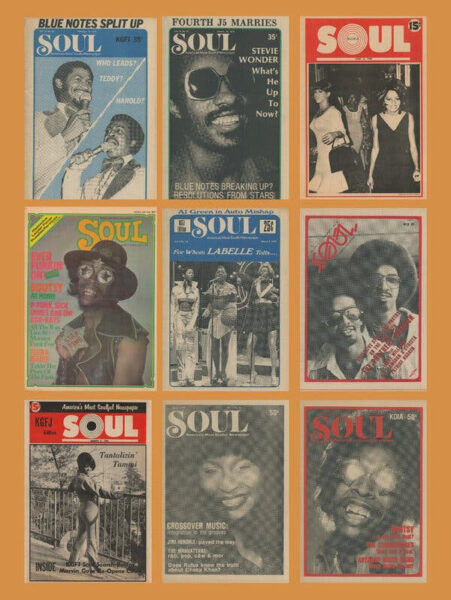
- “As the most granular source of news and images of soul, R&B, funk and disco artists in the Golden Age of those genres, Soul is a gold mine for Black history and pop culture scholars,” the New York Times wrote Wednesday. Matt Jones, grandson of Ken Jones, Los Angeles’s first Black television anchor, and his wife, Regina Jones, “the face of Soul,” “is giving the publication a second life, creating an online archive of its issues for paying subscribers and uploading select audio from interviews,” Christopher Petkanas reported for the Times. “ ‘We have bound volumes of all the issues that have been in my grandmother’s home for as long as I can remember,’ Jones, 39, said. He has digitalized 82 issues with 291 to go, and is leaning on Regina, now 80, for historical context. (The two talk every day; Ken died in 1993.) . . .”
- Vice President Kamala Harris “has already made history as the first woman, the first African American and the first Asian American ever to serve as vice president, but she has still struggled to define her role much beyond that legacy,” Zolan Kanno-Youngs, Katie Rogers and Peter Baker wrote Monday in The New York Times. In “private conversations over the last few months, dozens of Democrats in the White House, on Capitol Hill and around the nation — including some who helped put her on the party’s 2020 ticket — said she had not risen to the challenge of proving herself as a future leader of the party, much less the country. Even some Democrats whom her own advisers referred reporters to for supportive quotes confided privately that they had lost hope in her. . . .”
 LaSharah S. Bunting (pictured) is the Online News Association’s new CEO and executive director, effective March 13, ONA announced Monday. Bunting, once a reporter at the New York Times, “was most recently a Vice President and Executive Editor at Simon & Schuster, where she acquired and edited nonfiction titles, with a particular focus on deeply reported narratives that explore the complex issues of our time. Before that, as Director of Journalism at the John S. and James L. Knight Foundation, she managed grants and initiatives that accelerated digital and organizational transformation in newsrooms, advanced equity and inclusion and boosted the development of new skills and expertise. . . .”
LaSharah S. Bunting (pictured) is the Online News Association’s new CEO and executive director, effective March 13, ONA announced Monday. Bunting, once a reporter at the New York Times, “was most recently a Vice President and Executive Editor at Simon & Schuster, where she acquired and edited nonfiction titles, with a particular focus on deeply reported narratives that explore the complex issues of our time. Before that, as Director of Journalism at the John S. and James L. Knight Foundation, she managed grants and initiatives that accelerated digital and organizational transformation in newsrooms, advanced equity and inclusion and boosted the development of new skills and expertise. . . .”
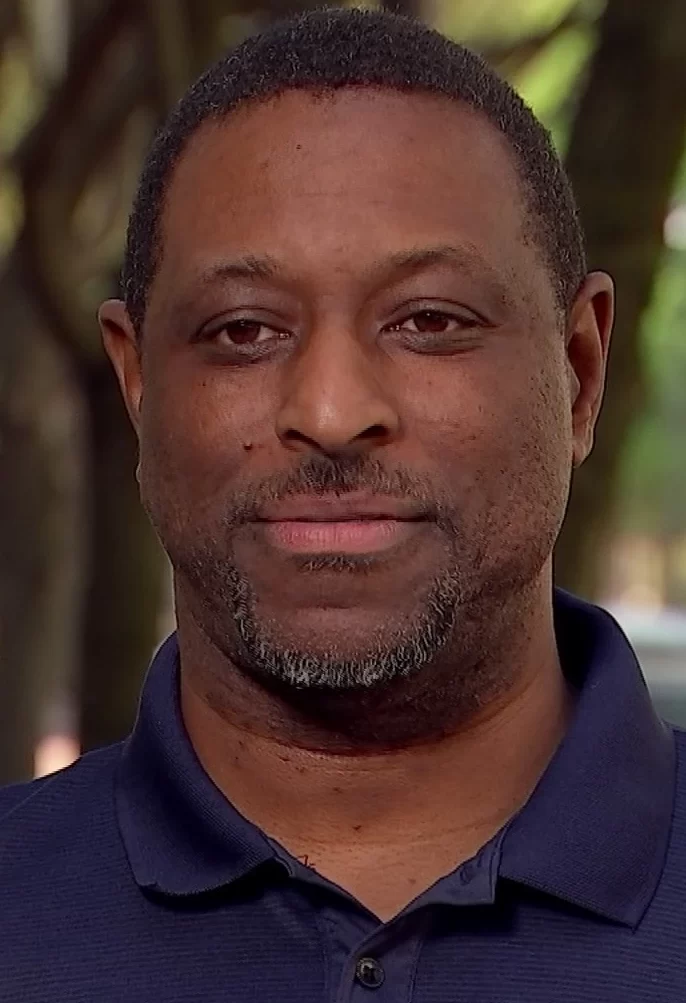 Calvin Watkins (pictured), who covers the Dallas Cowboys for the Dallas Morning News, Friday became the third Black president of the Pro Football Writers of America. He messaged Journal-isms, “Only goals I have is to increase membership and maintain the locker room access that’s needed for [journalists] to do their jobs. We have a great relationship with the league and players and I just want to maintain that. It’s an incredible honor when you think about the previous presidents of the organization.”
Calvin Watkins (pictured), who covers the Dallas Cowboys for the Dallas Morning News, Friday became the third Black president of the Pro Football Writers of America. He messaged Journal-isms, “Only goals I have is to increase membership and maintain the locker room access that’s needed for [journalists] to do their jobs. We have a great relationship with the league and players and I just want to maintain that. It’s an incredible honor when you think about the previous presidents of the organization.”

- “Despite a court ruling suggesting that Montgomery police used excessive force, and despite the family’s call for the body camera footage to be made public, the four-year-old video of a police dog biting and killing a Black man remains private,” Ashley Remkus reported Monday for al.com. Remkus also wrote, “Yet cities and police departments in Alabama often fight for years to keep the videos hidden from public view. That’s what happened in Montgomery, where police ignored or denied media requests and where the family of Joseph Pettaway has fought in civil court for more than two years to make the footage of his death public. The city has fiercely fought the release. . . .”
- “Candid, the major philanthropy research group, is leading a coalition of funders and grantees that want to standardize the collection of demographic information to help enable donations to minority-led groups,” Glenn Gamboa reported Tuesday for the Associated Press. Gamboa also wrote, “The initiative — dubbed Demographics via Candid, or DvC — hopes to create a straightforward survey that is as widely accessible as a philanthropy’s 990 form for the Internal Revenue Service. If it succeeds, nonprofits would no longer have to provide specialized diversity information for each of its donors. And it would be easier for the philanthropic sector to measure how much money is going to minority-led groups . . .”
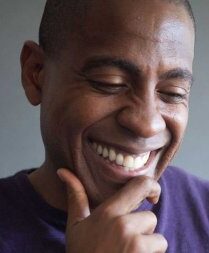 “Ozy, the youth-focused media company that imploded in 2021 over a misleading pitch to potential investors, is raising money again — pitching itself as a ‘fresh,’ ‘hip,’ media brand for a younger generation,” Max Tani reported Wednesday for Semafor. “In a 30-minute-long presentation to potential advertisers and investors at the MAGNA Equity Upfronts in Manhattan on Wednesday, Ozy founder Carlos Watson (pictured) and his team implored brands to invest in the digital media company ‘if you want the opportunity to spread love.’ . . .”
“Ozy, the youth-focused media company that imploded in 2021 over a misleading pitch to potential investors, is raising money again — pitching itself as a ‘fresh,’ ‘hip,’ media brand for a younger generation,” Max Tani reported Wednesday for Semafor. “In a 30-minute-long presentation to potential advertisers and investors at the MAGNA Equity Upfronts in Manhattan on Wednesday, Ozy founder Carlos Watson (pictured) and his team implored brands to invest in the digital media company ‘if you want the opportunity to spread love.’ . . .”
- “A three-part series by Environmental Health News and palabra, a multimedia platform of the National Association of Hispanic Journalists, on pesticide use in California finds that rural communities of color and farmworkers are disproportionately exposed to some of the most dangerous chemicals used in agriculture. Our reporting also highlights how communities most at risk of pesticide exposure have led the charge to enact stronger, more protective rules and increase the public’s access to information about pesticide applications before they take place. . .”
- “In 2012, I wrote, directed, and produced the documentary film Mumia: Long Distance Revolutionary,” Stephen Vittoria wrote Saturday for nj.com. “This narrative did not deal with [Mumia] Abu-Jamal’s legal battle but rather his life as a journalist before and after incarceration.” Abu-Jamal, a onetime president of the Philadelphia Association of Black Journalists, has been serving a death sentence and now a life sentence for the murder of Philadelphia patrolman Daniel Faulkner in 1981. “And then Shaquille O’Neal rode into town. Also a native of Newark, the ex-NBA superstar and co-owner of CityPlex12 summarily pulled the plug and canceled the film’s engagement. . . .” Linn Washington sees similarities between the Abu-Jamal case and that of Tyre Nichols in that both men were beaten.
-
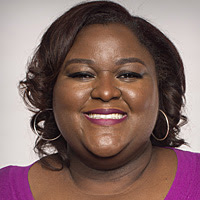 “Akili Franklin (pictured), since 2020 the news director at Hearst Television’s NBC affiliate WYFF Greenville-Spartanburg-Anderson, S.C./Asheville, N.C., has been promoted to the newly created corporate position of director, news management recruitment for Hearst Television,” TVNewsCheck reported Tuesday. “In this new role, Franklin will identify news professionals for positions across the company’s news division. She will also oversee the Fred Young Hearst Television Producing Fellowship program. . . .”
“Akili Franklin (pictured), since 2020 the news director at Hearst Television’s NBC affiliate WYFF Greenville-Spartanburg-Anderson, S.C./Asheville, N.C., has been promoted to the newly created corporate position of director, news management recruitment for Hearst Television,” TVNewsCheck reported Tuesday. “In this new role, Franklin will identify news professionals for positions across the company’s news division. She will also oversee the Fred Young Hearst Television Producing Fellowship program. . . .”
- “The Africa Channel said it doubled its ad sales in 2022 and is looking to build on that momentum by making its first upfront deals this year,“ Jon Lafayette reported Thursday for Broadcasting & Cable. “The number of brands advertising on the network grew by five times last year, said Dean Cates, senior VP of business development & sales. . . .”
- “In Italy, the news is generally reported by white journalists. It is a well-known and well-understood fact that holds true for every medium of news – television, radio and digital. But at the same time, it is tough to substantiate this phenomenon with data,” Angelo Boccato and Francesco Guidotti reported Thursday for The Fix Media in London, and carried in the Daily Beast. “That is because the Italian news media suffers from a dearth of data on the state of the profession. Add to it the citizenship laws that favour the Italians and an overall failure of the country to recognize minorities, and you are left with a profession that is dominated by one race and one gender. . . .”
- “The Press Club of India, Press Association, and the Delhi Union of Journalists on Thursday condemned the killing of journalist Shashikant Warishe in Maharashtra,” the Hindu reported. “The victim had been hit and dragged by an SUV, leading to his death. On Wednesday, Reporters Without Borders said it hailed “the swift arrest of the real estate lobbyist alleged to have deliberately mown down a journalist who had for months been covering illegal land seizures in connection with a planned refinery in western India’s Maharashtra state. The accused killer must be brought to trial without delay. . . .”
- “Somali Regional State Communications Bureau has passed a decision to take 15 foreign media outlets broadcasting in the region off air and accused reporters of the outlets based in the region, including the BBC Somali service, of working without licenses,” Ethiopia’s Addis Standard reported on Jan. 31. “An official within the bureau told Addis Standard that the representatives of the media outlets are suspended for failing to have proper media accreditation. . . .”
To subscribe at no cost, please send an email to journal-isms+subscribe@groups.io and say who you are.
Facebook users: “Like” “Richard Prince’s Journal-isms” on Facebook.
Follow Richard Prince on Twitter @princeeditor
Richard Prince’s Journal-isms originates from Washington. It began in print before most of us knew what the internet was, and it would like to be referred to as a “column.” Any views expressed in the column are those of the person or organization quoted and not those of any other entity. Send tips, comments and concerns to Richard Prince at journal-isms+owner@
View previous columns (after Feb. 13, 2016).
View previous columns (before Feb. 13, 2016)
- Diversity’s Greatest Hits, 2018 (Jan. 4, 2019)
- Book Notes: Is Taking a Knee Really All That? (Dec. 20, 2018)
- Book Notes: Challenging ’45’ and Proudly Telling the Story (Dec. 18, 2018)
- Book Notes: Get Down With the Legends! (Dec. 11, 2018)
- Journalist Richard Prince w/Joe Madison (Sirius XM, April 18, 2018) (podcast)
- Richard Prince (journalist) (Wikipedia entry)
- February 2018 Podcast: Richard “Dick” Prince on the need for newsroom diversity (Gabriel Greschler, Student Press Law Center, Feb. 26, 2018)
- Diversity’s Greatest Hits, 2017 — Where Will They Take Us in the Year Ahead?
- Book Notes: Best Sellers, Uncovered Treasures, Overlooked History (Dec. 19, 2017)
- An advocate for diversity in the media is still pressing for representation, (Courtland Milloy, Washington Post, Nov. 28, 2017)
- Morgan Global Journalism Review: Journal-isms Journeys On (Aug. 31, 2017)
- Diversity’s Greatest Hits, 2016
- Book Notes: 16 Writers Dish About ‘Chelle,’ the First Lady
- Book Notes: From Coretta to Barack, and in Search of the Godfather
- Journal-isms’ Richard Prince Wants Your Ideas (FishbowlDC, Feb. 26, 2016)
- “JOURNAL-ISMS” IS LATEST TO BEAR BRUNT OF INDUSTRY’S ECONOMIC WOES (Feb. 19, 2016)
- Richard Prince with Charlayne Hunter-Gault, “PBS NewsHour,” “What stagnant diversity means for America’s newsrooms” (Dec. 15, 2015)
- Book Notes: Journalists Follow Their Passions
- Book Notes: Journalists Who Rocked Their World
- Book Notes: Hands Up! Read This!
- Book Notes: New Cosby Bio Looks Like a Best-Seller
- Journo-diversity advocate turns attention to Ezra Klein project (Erik Wemple, Washington Post, March 5, 2014)

